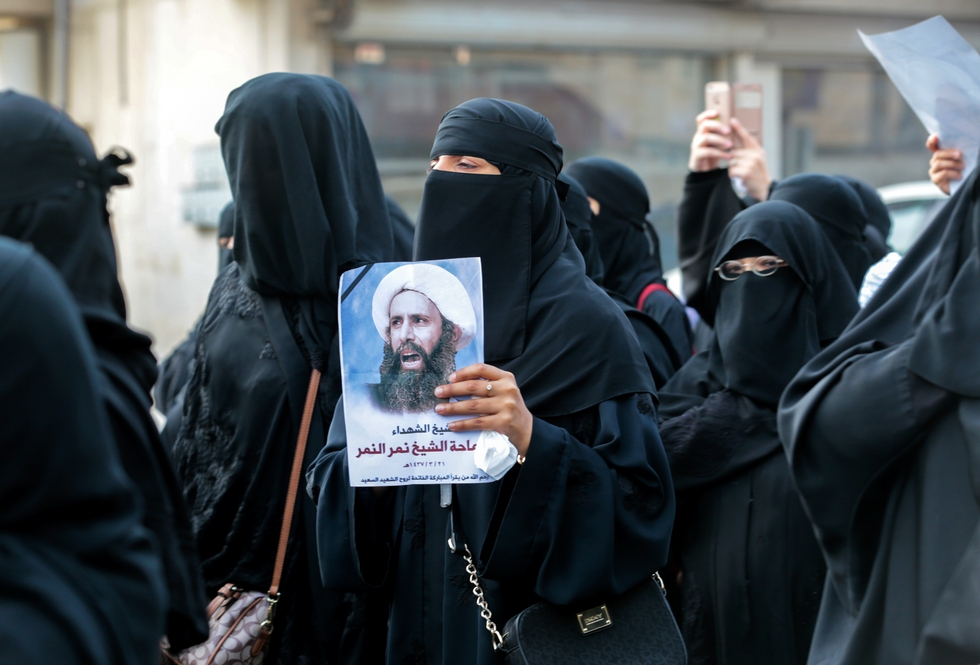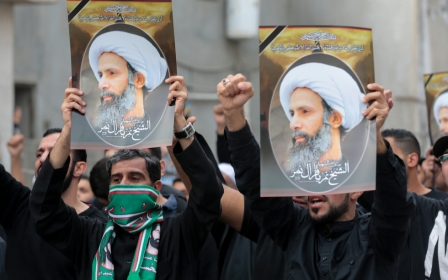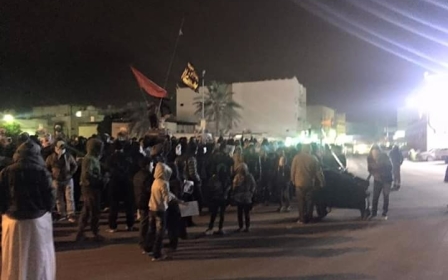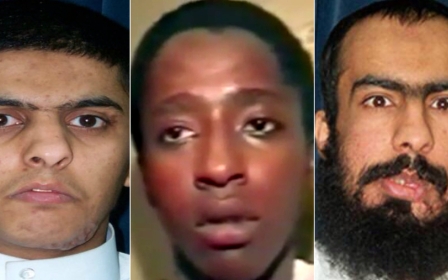Saudi protesters fire-bomb intelligence building in Qatif

A group of masked men threw firebombs at an intelligence service compound in the city of Qatif in eastern Saudi Arabia, activists said on Monday, in an alleged revenge attack for the execution of a prominent Shia cleric by Saudi authorities at the beginning of January.
According to Reuters, a Saudi Interior Ministry spokesman said "there was a failed terrorist attempt to burn the building with Molotov cocktails" and that one of the assailants was captured.
An activist told Middle East Eye that three people have been arrested in relation to the attack on the intelligence building.
Baher al-Mahroos, 20, remains in detention while the two other men who were not identified were released.
"The attack took place Sunday early morning between 3:30-4:00am," the activist, who wished to remain anonymous, said.
One resident expressed his concern that such attacks would further escalate matters, leading to a crackdown by Saudi authorities.
"Protesters are very worried about this. They want to keep everything peaceful," the resident said. "The attack happened near a march [on Sunday], which was peaceful. We don't want people to start being violent."
Tensions have remained high in the Shia-populated Qatif region over the past two weeks following the execution of prominent Shia cleric Nimr al-Nimr.
Another resident of Awamiyah, the town where Nimr is also from, told MEE that he has never seen his community like this before, where locals fear that the government will send in security forces to Qatif resulting in bloody repression.
"Everybody is living in fear," the resident said, also requesting anonymity. "We are all pushing our young people not to use violence against the government."
"The signals from the government are not good," he added. "They will come here and cause problems."
Nimr was among a handful of Shia prisoners to be executed. Following his arrest in 2012 after playing a leading role in government reform protests, the 56-year-old was charged with sedition and rioting.
Nimr's execution was announced on 2 January, along with 46 other prisoners. The majority were charged with being members and operatives of al-Qaeda.
Protestors took to the streets to denounce Nimr's execution, with demonstrators calling for the death of Al-Saud, the ruling family.
Saudi security forces and armoured vehicles patrolled the streets of Qatif to quell demonstrations. At least one person was killed in the protests, Middle East Eye reported.
The cleric's family have publicly called for peaceful protests in reaction to his execution.
New MEE newsletter: Jerusalem Dispatch
Sign up to get the latest insights and analysis on Israel-Palestine, alongside Turkey Unpacked and other MEE newsletters
Middle East Eye delivers independent and unrivalled coverage and analysis of the Middle East, North Africa and beyond. To learn more about republishing this content and the associated fees, please fill out this form. More about MEE can be found here.




